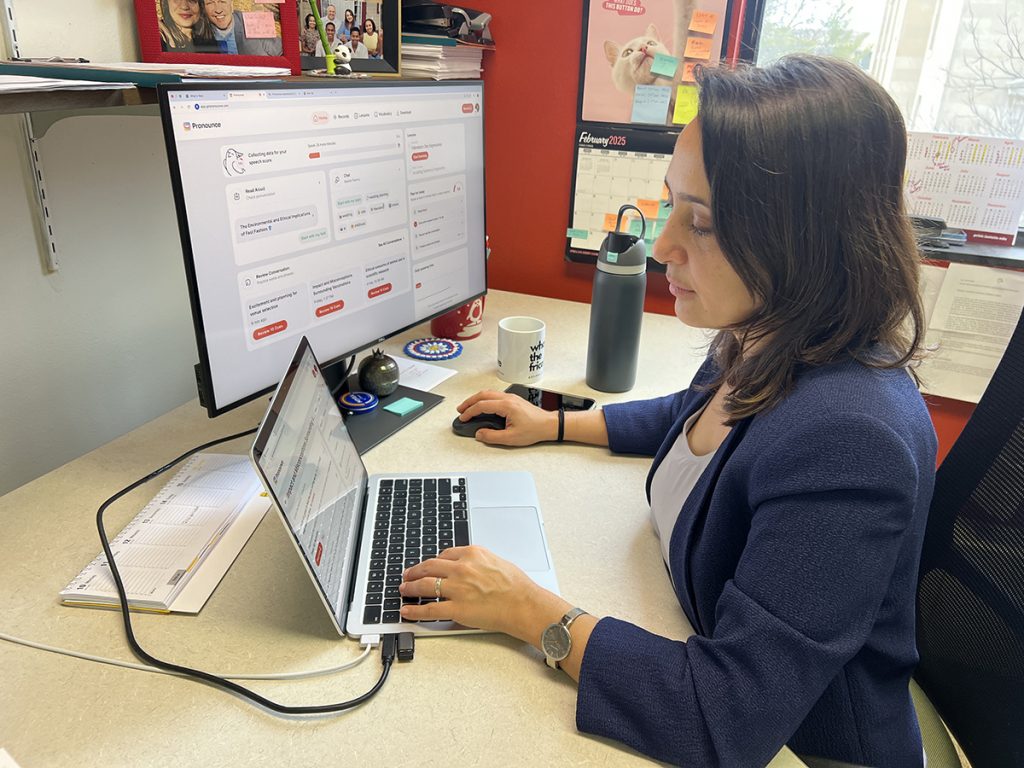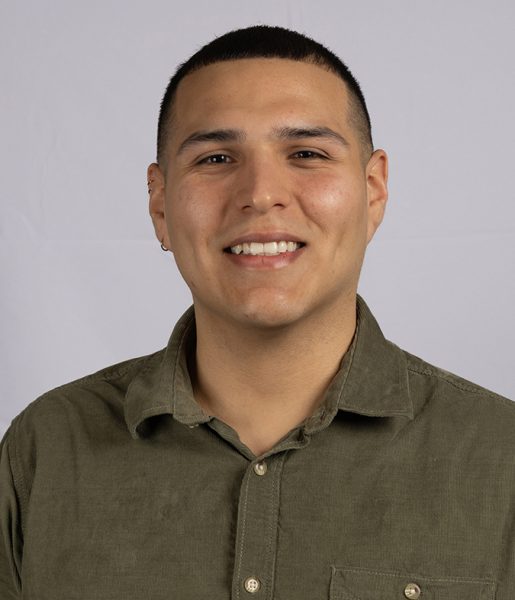This is the question that Dr. Sinem Sonsaat-Hegelheimer set out to answer with the help of her undergraduate research assistant, Isidro Gonzalez, a senior in linguistics. They teamed up with the developer of Pronounce, one of the first tools built specifically to use the language recognition capabilities of artificial intelligence (AI) to help learners improve their pronunciation in English.

Photo by Danielle Black
Sonsaat-Hegelheimer, an assistant professor of English and linguistics, designed the study to offer participants sufficient opportunity to improve their pronunciation through interaction with the app. Participants were primarily graduate students who came from a diverse range of language communities. Utilizing large language models Gemini and Pronounce, Sonsaat-Hegelheimer’s primary goal was to see how effective AI was at teaching students to pronounce English correctly. The study lasted three weeks, and students had the option to come in either three times a week or work on their own time.
The process took place in Sonsaat-Hegelheimer’s office, where participants conversed orally with the AI and then practiced their pronunciation of certain words. “Students repeated the words three or four times until each was perceived correctly,” said Sonsaat-Hegelheimer, with the clarification that correct pronunciation is not the same as sounding like a native speaker. “They don’t have to sound like a native speaker. It’s totally okay to keep your accent, and indeed, [all speakers,] including first language speakers, have their own accents. That’s why I was intrigued by the study of pronunciation.”
Gonzalez learned how to conduct pronunciation research by assisting with the collection and analysis of the data. Gonzalez was intrigued by the finding showing that “when the students came into the office more often for the sessions, or for the majority of their scheduled time, there was an improvement in pronunciation.”

While the AI did help students with their pronunciation, there were some setbacks. The Pronounce app occasionally struggled with perceiving pronunciation even when a word was pronounced correctly. Sonsaat-Hegelheimer made sure to take this into account for the study. If a participant’s pronunciation was not perceived correctly multiple times, they would simply move on to the next conversation with the AI.
The developers of Pronounce hope to continue to improve their tool, Sonsaat-Hegelheimer explained. “They asked me multiple times, ‘What feedback can you give us? What can we improve?’ So that made me very happy because they care about improving their tool and they care about the opinions of the linguists who use their tool,” said Sonsaat-Hegelheimer.
Prior to Sonsaat-Hegelheimer’s research, few studies have investigated the use of AI to help with pronunciation. “There’s not much about speaking yet,” said Sonsaat- Hegelheimer. While it is quite possible that AI will be a tool utilized in the classroom, Sonsaat-Hegelheimer does not see it replacing teachers.
Following the results from the study, especially from the students who came in to practice consistently, Sonsaat-Hegelheimer said, “My idea was reinforced that teachers will always be needed to guide learners’ use of technology.” Sonsaat-Hegelheimer and Gonzalez presented the findings at two conferences in September 2025: Pronunciation in Second Language Learning and Teaching (PSLLT) in Ames and AI Research in Applied Linguistics (AIRiAL) in New York.
When asked what advice Sonsaat-Hegelheimer would give to students interested in research opportunities, she said to ask their professors. “Anytime of the semester, once they see that they like a professor they would like to work with, they could just approach; they don’t need to know if that person has a project or not.”
